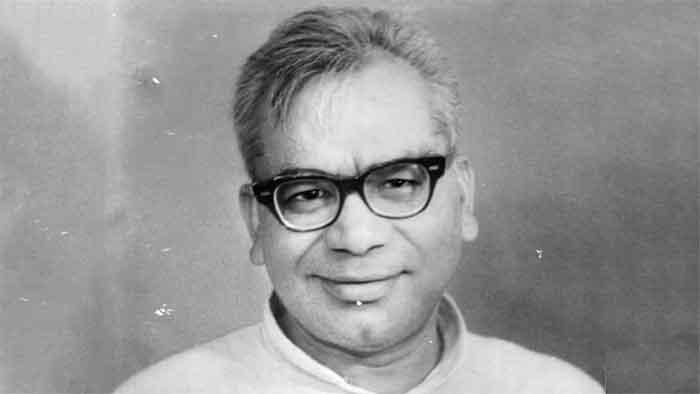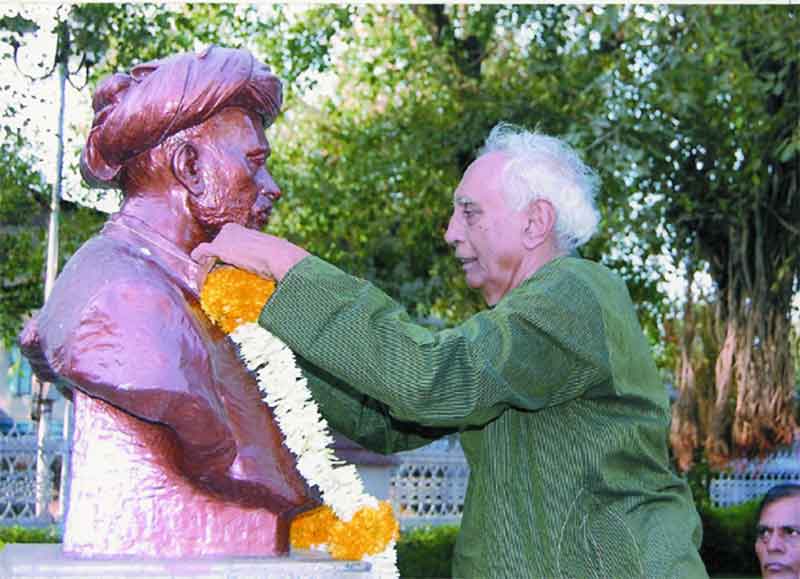
Socialist thinker Dr. Ram Manohar Lohia, whose death anniversary is today, often used to say that the life force of true democracy lies in the reversal of governments. He did not make any effort till his last breath for this reversal, which was considered ‘impossible’ in those days of Congress domination. His uneasiness towards these efforts was such that even if they failed, he did not lose heart, considering the failure as instantaneous. He kept the faith that one day his efforts would definitely pay off. His statement that ‘people will listen to me, but after I die’ was a sign of this.
His aspirations of ‘reversal’ were dealt a blow by the crushing defeat in the third general election to the Lok Sabha in February 1962, yet in his historic speech in Nainital on June 23, 1962, he called the workers ‘duties of despair’ to implement them. Said to Then his slogan of non-Congressism shook the Congress party in the 1967 elections. He was ousted from power in many states, if not at the center.
On the other side, Dr. Lohia never gave much importance to electoral victory or defeat. Always believe that elections are golden opportunities to take your policies and principles among the people, far beyond victory or defeat. In the 1962 general election, he himself made full use of this golden opportunity when he himself became a candidate from his constituency Phulpur to challenge Prime Minister Pt. Jawaharlal Nehru.
In any case, his parliamentary life was not long due to his avoidance of reaching Parliament like other leaders. But when he died in Delhi, he was the MP of the new Kannauj Lok Sabha seat created by dividing his Karmabhoomi Farrukhabad. Earlier, he had also won the historic by-election of Farrukhabad Lok Sabha seat. It was said that his biggest strength was that the underprivileged and weak people of the country considered him as their man.
Dr. Lohia started the Canal-Rate movement by calling the extortion tax in Farrukhabad seven times in 1954 as an oppression on the farmers and advised the aggrieved farmers to go to the extent of dying for their rights. On July 4, 1954, he was arrested by the police after meetings in Farrukhabad and Kayamganj. Then there was such public support in his favor that a situation like civil disobedience arose. The then Prime Minister Jawaharlal Nehru had strongly criticized him saying that what is the need for such civil disobedience against democratically elected governments in a free country?
When the voters of Farrukhabad won the by-election and sent him to the Lok Sabha, there he started the famous intellectual debate on the no-confidence motion moved by JB Kriplani against the Nehru government. In the speech, he said that the country’s per capita daily income is only three annas and the government’s claim that it is fifteen annas is completely wrong. Then he criticized the country’s 27 crore people for being forced to live on such a meager income and the government belittling their helplessness that the ruling party went unanswered.
It is said that due to the image of his moral, honest and struggling leader, he got 93,578 votes in the Kannauj Lok Sabha seat in the 1967 elections. His nearest rival SN Mishra of Congress got 93,106 votes and lost by a margin of 472 votes. But at this juncture age dealt with him very unfairly. He did not even allow them to celebrate the anniversary of this victory. When he fell ill a few months after the election, he was admitted to the then Willington Hospital in Delhi, where it was not possible for doctors to save him. After his death, the name of that hospital was changed to Dr. Ram Manohar Lohia Hospital in his memory.
However, his birthplace, Akbarpur, located in the erstwhile Faizabad district, where he was born on March 23, 1910, and now the headquarters of Ambedkarnagar district, is more than three hundred kilometers away from his Karmabhoomi, Farrukhabad or Kannauj, but now he is more than three hundred kilometers away from his birthplace. In both the fields of work are left unclaimed. Even the socialists who claim to be his heir are not interested in taking forward his policies and ideas – neither in his good days nor in bad days.
The result of this is that even though Dr. Lohia’s agenda was to remove English and bring Hindi to the fore, the Avadh University in Ayodhya, to which his name is associated, does not have a department of Hindi, nor does Dr. Lohia’s academics. There is an undertaking to move the works forward. In 1931, after the martyrdom of Bhagat Singh, Sukhdev and Rajguru on 23rd March, Dr. Lohia used to say that ‘Now 23rd March is the martyrdom day of these three revolutionaries more than my birthday.’
Vikas Parashram Meshram
[email protected]















































